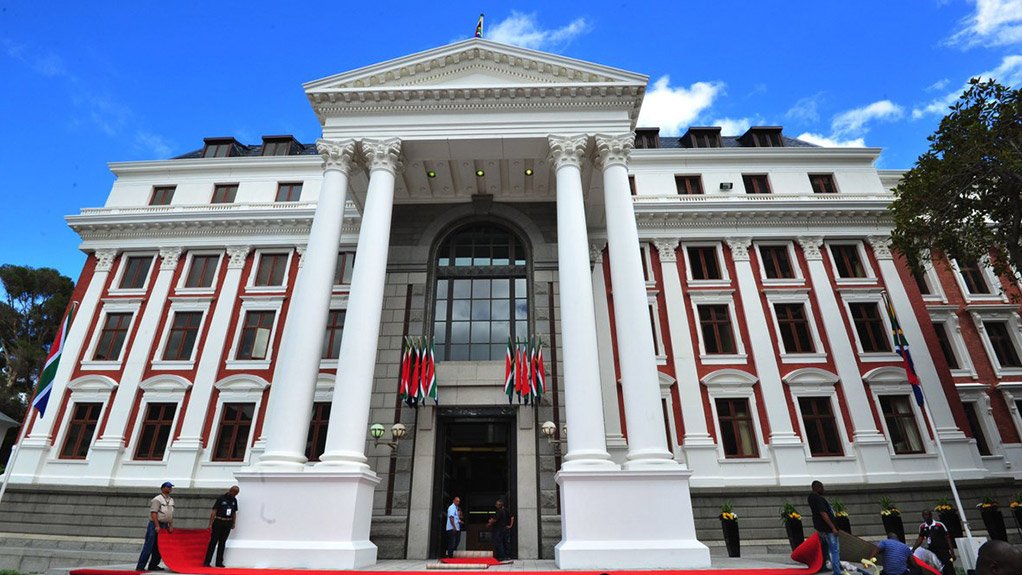/ MEDIA STATEMENT / The content on this page is not written by Polity.org.za, but is supplied by third parties. This content does not constitute news reporting by Polity.org.za.
The Portfolio Committee on Human Settlements, Water and Sanitation and the Portfolio Committee on Cooperative Governance and Traditional Affairs have criticised the prevailing culture of non-payment of services in the country.
The committees received briefings from the departments of Water and Sanitation, National Treasury and Cooperative Governance and Traditional Affairs, and the South African Local Government Association (Salga).
This worrying culture, the committees said, has a direct impact on the ability of the government agencies at all levels of government in delivering services they constitutionally compelled to deliver to the people.
The committees consider it unsustainable, that the aggregate municipal water use debt to the Water Trading Entity and Water Boards is currently standing at R14.9 billion by municipalities and as a results water boards owe R5 billion to the department. This, the committees said, directly impacts on the Water Trading Entity and Water Boards to effectively implement their mandate.
This, they said, impacts directly on the Water Trading Entity and Water Boards to implement their mandate effectively. According to the committees, while it is unacceptable that municipalities owe Water Boards and WTE so much money, it is more worrying that the government departments, businesses and households owe municipalities R165.5 billion in services.
Of this amount, government departments owe R10.2 billion, commercial R24.7 billion and households R118.5 billion. The culture of non-payment has unintended ripple effect on service delivery.
The committees agreed that in fixing the entire value chain, the recommendation to look at prepaid water meters is ideal, and will resolve the R118. 5 billion (71.7% of total debt) by households as well as challenges of inaccurate billing by municipalities. The use of prepaid meters will also enable the households to budget properly for services they receive.
Above all, the most basic thing to get right is the payment of services by the government departments, leaders of society and households that can afford. The committees supported the recommendation to broaden the Schedule 1 and 2 of the Code of Conduct of the Municipal Systems Act to include officials of state organs and political office bearers.
“In building a culture of payment of services, we must start with all the leaders and government departments that keep up to the civic duty of paying services. Maybe we must look at strengthening policy that exposes defaulters, especially those in positions of power,” said Ms Machwene Semenya, the Chairperson of the Portfolio Committee on Water and Sanitation.
The committees agreed that the 38% of water losses due to ageing infrastructure was a huge cause for concern especially in the context of the unavailability or limited budgets for maintenance at municipal level. The committees called for the municipalities to urgently prioritise plans to fund maintenance work of the infrastructure at both bulk and reticulation levels.
A concern was raised by the committees on the revelations that bulk water tariffs are in most cases higher than the reticulation tariffs which means that municipalities are running at a deficit in providing services especially because municipalities are the worst polluters of the river system which add additional cost on the tariffs.
The committees have called for the review of the tariff structure on the one hand, to protect the water resource, but also to protect the end user against excessively high tariffs on the other hand. The tariffs system, they emphasised, must be structured in a manner that encourages people to pay.
The committees told the departments that, fixing of challenges of derelict waste water treatment system faced by municipalities must be a priority, especially because of the cost factor that adds on the overall tariff structure. Connected to that, according to the committees, is the urgent need to implement plans to adequately capacitate municipalities with requisite skills to ensure that they are financially viable, and technically able to deliver services to the people.
The committees are committed to meet periodically with all the stakeholders to receive updates on undertakings made by the departments to find permanent solutions.
Issued by the Parliamentary Communication Services on behalf of the Chairperson of the Portfolio Committee on Human Settlements, Water and Sanitation and Chairperson of the Portfolio Committee on Cooperative Governance and Traditional Affairs
EMAIL THIS ARTICLE SAVE THIS ARTICLE ARTICLE ENQUIRY
To subscribe email subscriptions@creamermedia.co.za or click here
To advertise email advertising@creamermedia.co.za or click here











